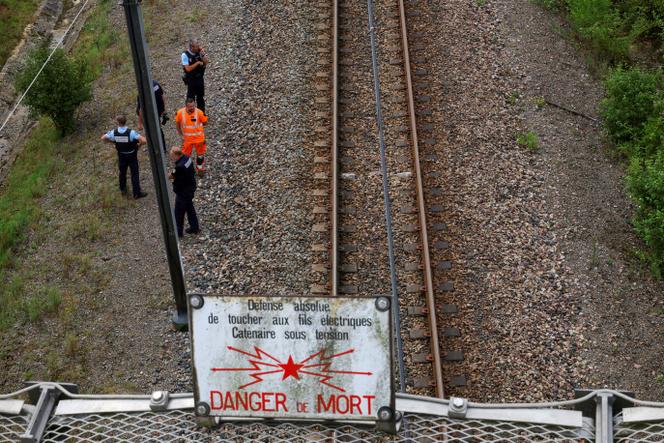


The perpetrators of the coordinated action in various parts of the country, close to rail hubs, are still unidentified. Police and judicial communications remain tightly sealed about the wave of sabotage that affected three points of the rail network on the eve of the Olympic Games opening ceremony on July 25, raising fears of more than a momentary paralysis of train traffic. Fiber-optic cables used to transmit safety information to drivers were cut and, in some cases, set on fire in strategic signal boxes at Courtalain (ligne à grande vitesse – high-speed line – LGV Atlantique), Croisilles (LGV Nord) and Pagny-Sur-Moselle (LGV Est). Another incident of the same type, at Vergigny (north-central France), was thwarted on the LGV Sud-Est thanks to railway workers in charge of night-time maintenance.
The case is not only sensitive because of the possibility of similar acts being carried out; above all, it constitutes the only major security issue known to date in the running of the Olympics, with disruptions for 800,000 users for 72 hours. On Monday, July 29, Interior Minister Gérald Darmanin said that the intelligence agencies had "identified a certain number of profiles that could have committed" "voluntary, very precise, extremely well-targeted" sabotage, evoking the "traditional mode of action of the ultra-left."
At this stage, however, no evidence of the involvement of far-left activists has been reported, and the case has been sent by the Paris Public Prosecutor's Office to the national jurisdiction against organized crime (JUNALCO), which has asked the Anti-Terrorist Sub-Directorate of the Judicial Police (SDAT) and the General Directorate of the National Gendarmerie to investigate.
A police source confirmed the main lead is that of "very discreet ultra-left cells, accustomed to a certain form of secrecy and wary of modern means of communication to avoid being traced." For the investigators, however, there is nothing to indicate that the mysterious letter sent on Sunday, July 28 to several French and foreign media companies, signed by an equally enigmatic "Délégation inattendue" (unexpected delegation), was the work of the saboteurs. The letter, which combines condemnation of the Olympic Games organization, described as a "testing ground for police management of crowds," and various considerations on the international situation, certainly borrows from the "semantic register of organizations close to the ultra-left," according to the same source, but "sounds more like an opportunistic communication than a claim strictly speaking."
You have 30.56% of this article left to read. The rest is for subscribers only.
